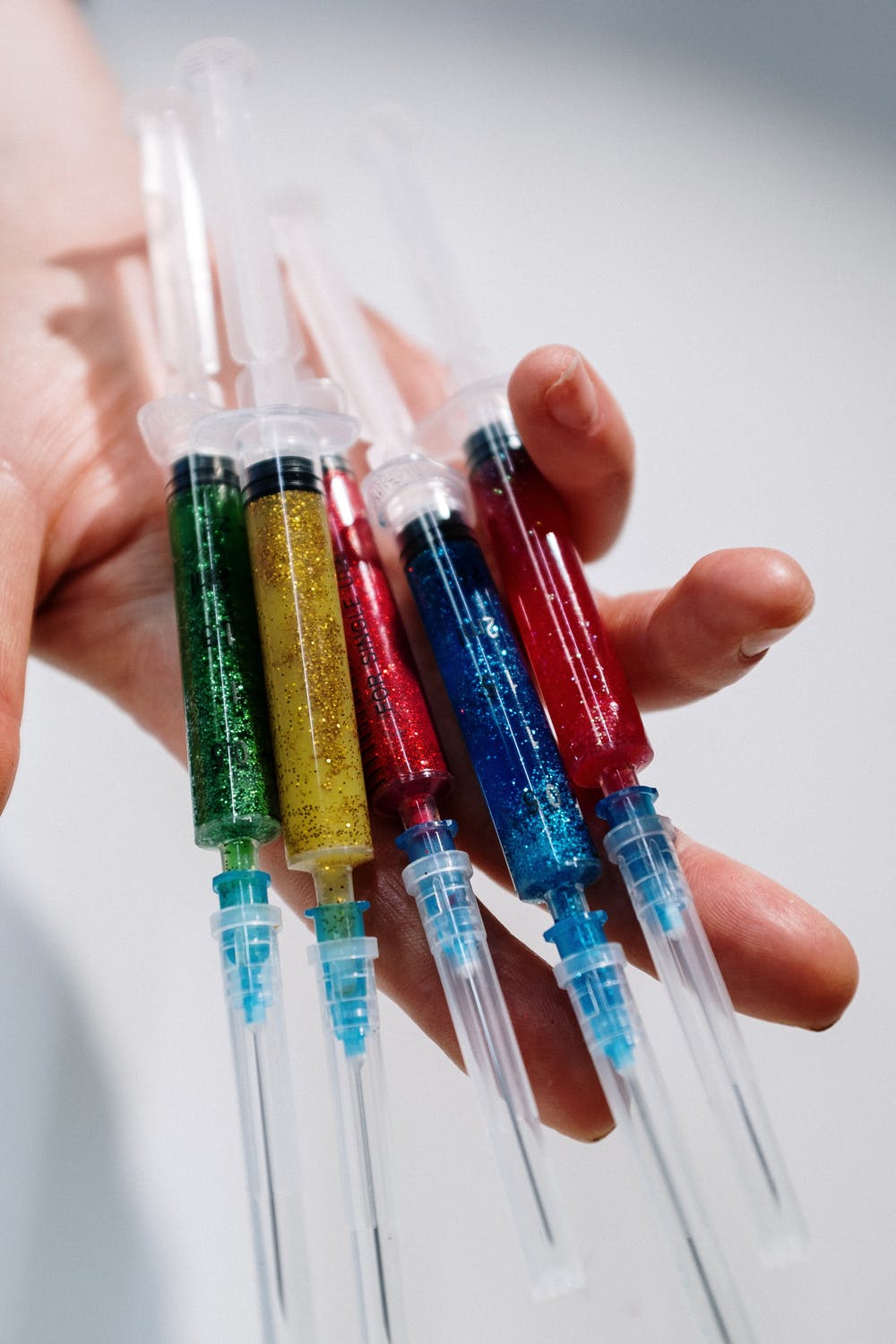Did you know there are different syringe types? Hopefully, that fact doesn’t set off anyone’s trypanophobia. But it’s true, there are different types of syringes, each with specific purposes and uses.
And that’s what we’re going to cover in this article today.
What different types of syringes are there? What are their uses? How do their designs make them better than a traditional injection syringe?
Let’s begin.
Syringe Types
There are many types of syringes. First, there’s the insulin syringe. It’s a common, single-use syringe with a fine needle used for injecting insulin.
Next are oral syringes. Expect to see these used for small children or animals to deliver medicine into the mouth. As such their tips aren’t sharp or fine-pointed.
Then there are dental syringes. These differ from oral syringes in that they are used for injecting anesthetic solutions directly into an area.
Tuberculin syringes are next. These are small syringes that hold 1ml of fluid. As the name suggests, they’re used to perform tuberculosis tests (PPD) or for subcutaneous or intradermal medicine injections.
Then there are venom extraction syringes. These are specially made to extract venom from a wound without further damaging the wound.
Finally, there are multi-shot needle syringes. These syringes are larger than most, having a built-in reservoir that automatically refills after each injection. These syringes are rarely used due to the risk of contamination between injections.
Different Syringe Materials
Most types of medical syringes are made from three different types of materials.
The first and most used syringe-type is plastic. These syringes are inexpensive and used only once. As for the tip of the syringe, they are either plastic or rubber.
It’s believed that rubber is better due to the minimal leaking past the plunger. The trade-off for these cheaper syringes is that they flex and can break fairly easily.
Next, there are glass syringes. Glass syringes are more expensive than their plastic counterpart, however, they are cleanable and reusable.
A glass syringe comes with a syringe pump. The tip of the syringe is either ground glass, metal, glass with a Teflon tip, or metal with a Teflon tip.
Glass syringes aren’t prone to bending or flexing like plastic. As you’d expect, they will shatter if dropped or enough pressure is applied.
Finally, there are stainless steel syringes. These are the most durable types of syringes and are used for high-pressure injections. It is the most expensive type of syringe and is reusable, like glass syringes.
One trade-off professionals find is that stainless steel syringes aren’t transparent, making them more difficult to use and get rid of air bubbles.
Syringe Tips
There are four main types of syringe tips:
- Lure lock tips – these tips thread together to ensure a needle is able to lock, forming a secure connection while delivering medicine.
- Slip tips – often used for diabetics, these have no locking mechanisms but instead use a friction-fit connection.
- Catheter tips – with a tight seal and tapered tip, these are used for cleaning (you guessed it) catheters and other devices
- Eccentric tips – used commonly for injecting into a vein on the surface of one’s skin.
For more syringes and tips, check out chromtech.com.
Know What You Need
Knowing the differences between syringe types will help you in ensuring you’re using the correct one each and every time. If you regularly use syringes, reusable options are great. If you use them sparingly, it may be best to use disposable plastic syringes.
Looking for more content to keep you healthy? Check out our related blog posts.



